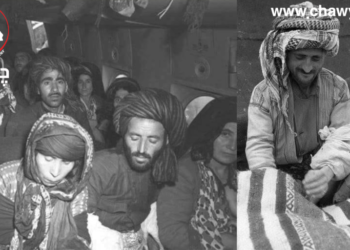“A Hidden Hand: Coordination between the Naqshbandi-Khalidi Movement and the Usuli Believers in Aleppo”
During its two centuries of existence, from the early nineteenth century until now, the Khalidi branch of the Naqshbandi-Mujaddidi sect has remained the most influential and widespread organization in the Ottoman Empire and subsequent nation-states in the Middle East. The main success of this organization is due to two reformist characteristics, namely its founder, Sheikh Khalid of Sharazoor (1776-1827). He was inspired by the views and guidance of Mujaddidi that he had learned in India. One is an absolute adherence to religious principles, rooted in an unusually wide knowledge of Shari’ah science and theology, and the other is related to Naqshbandi’s desire for activism (i.e., the use of force to achieve tension). Khalid worked to strengthen his sect by encouraging it with a central and strong socio-religious movement.
The Khalidi movement, inspired and led by it, began to assist and support the sultans: Mahmud II (1808 – 1839) and Abdul Majid (1839 – 1861) in their efforts to renew the Ottoman Empire and halt its revolutionary retreat against European forces.
Along with the changes that have taken place in Aleppo. Unlike Istanbul, Damascus, or Baghdad, the Khalidi sect could not take root in the northern Syrian capital, which means it was never truly there. However, Khalid’s legacy is occasionally mentioned in both the traditional front and the fundamentalist movements in Aleppo.
Throughout the Ottoman period, Aleppo was the largest urban center between Istanbul and Cairo and served as the administrative capital of a separate province that covered northern present-day Syria and southeastern Turkey. Of its population of about 100,000 in the middle of the eighteenth century, 80 percent were Muslims, followed by a Christian and Jewish minority.
Aleppo, despite its extent, population, and rich endowment inherited from previous times had failed to take its rightful place as a major center of education in the nineteenth and twentieth centuries. The religious life of the city in the new century was under the spiritual control of the developed civilizational centers of Cairo and Damascus.
“The Khalidi Factor, Fixed Beliefs and Religious Activism”
The first active and intelligent figure of the Khalidi sect to exert an influence in Aleppo was a follower of Shaykh Khalid himself, Ahmad al-Hajjjar (1776-1861), a famous scholar. He was a great leader of his time and his biography is much talked about. He came from a poor family in Aleppo and was interested in religious studies and Sufism from childhood and youth, led by Ibrahim al-Hilali, the founder of the Qadiri-Khalwati movement.





























































